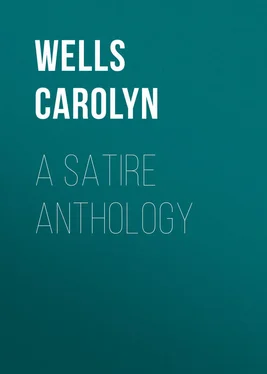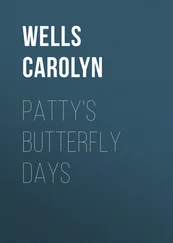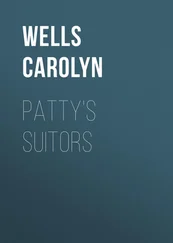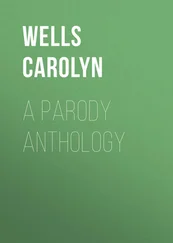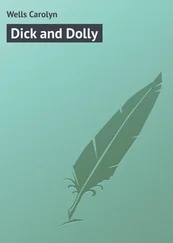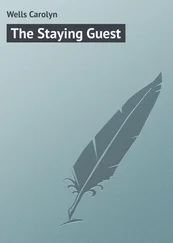Carolyn Wells - A Satire Anthology
Здесь есть возможность читать онлайн «Carolyn Wells - A Satire Anthology» — ознакомительный отрывок электронной книги совершенно бесплатно, а после прочтения отрывка купить полную версию. В некоторых случаях можно слушать аудио, скачать через торрент в формате fb2 и присутствует краткое содержание. Жанр: Юмористические книги, foreign_humor, на английском языке. Описание произведения, (предисловие) а так же отзывы посетителей доступны на портале библиотеки ЛибКат.
- Название:A Satire Anthology
- Автор:
- Жанр:
- Год:неизвестен
- ISBN:нет данных
- Рейтинг книги:5 / 5. Голосов: 1
-
Избранное:Добавить в избранное
- Отзывы:
-
Ваша оценка:
- 100
- 1
- 2
- 3
- 4
- 5
A Satire Anthology: краткое содержание, описание и аннотация
Предлагаем к чтению аннотацию, описание, краткое содержание или предисловие (зависит от того, что написал сам автор книги «A Satire Anthology»). Если вы не нашли необходимую информацию о книге — напишите в комментариях, мы постараемся отыскать её.
A Satire Anthology — читать онлайн ознакомительный отрывок
Ниже представлен текст книги, разбитый по страницам. Система сохранения места последней прочитанной страницы, позволяет с удобством читать онлайн бесплатно книгу «A Satire Anthology», без необходимости каждый раз заново искать на чём Вы остановились. Поставьте закладку, и сможете в любой момент перейти на страницу, на которой закончили чтение.
Интервал:
Закладка:
THE THREE BLACK CROWS
Two honest tradesmen meeting in the Strand,
One took the other briskly by the hand;
“Hark-ye,” said he, “’tis an odd story, this,
About the crows!” “I don’t know what it is,”
Replied his friend. “No! I’m surprised at that;
Where I came from it is the common chat;
But you shall hear – an odd affair indeed!
And that it happened, they are all agreed.
Not to detain you from a thing so strange,
A gentleman, that lives not far from ’Change,
This week, in short, as all the alley knows,
Taking a puke, has thrown up three black crows.”
“Impossible!” “Nay, but it’s really true;
I have it from good hands, and so may you.”
“From whose, I pray?” So, having named the man,
Straight to inquire his curious comrade ran.
“Sir, did you tell” – relating the affair.
“Yes, sir, I did; and, if it’s worth your care,
Ask Mr. Such-a-one, he told it me.
But, by the bye, ’twas two black crows – not three.”
Resolved to trace so wondrous an event,
Whip, to the third, the virtuoso went;
“Sir” – and so forth. “Why, yes; the thing is fact,
Though, in regard to number, not exact;
It was not two black crows – ’twas only one;
The truth of that you may depend upon;
The gentleman himself told me the case.”
“Where may I find him?” “Why, in such a place.”
Away goes he, and, having found him out,
“Sir, be so good as to resolve a doubt.”
Then to his last informant he referred,
And begged to know if true what he had heard.
“Did you, sir, throw up a black crow?” “Not I.”
“Bless me! how people propagate a lie!
Black crows have been thrown up, three, two, and one;
And here, I find, all comes, at last, to none.
Did you say nothing of a crow at all?”
“Crow – crow – perhaps I might, now I recall
The matter over.” “And pray, sir, what was’t?”
“Why, I was horrid sick, and, at the last,
I did throw up, and told my neighbor so,
Something that was – as black, sir, as a crow.”
AN EPITAPH
A lovely young lady I mourn in my rhymes;
She was pleasant, good-natured, and civil (sometimes);
Her figure was good; she had very fine eyes,
And her talk was a mixture of foolish and wise.
Her adorers were many, and one of them said
“She waltzed rather well – it’s a pity she’s dead.”
AN EPISTLE TO SIR ROBERT WALPOLE
WHILE at the helm of State you ride,
Our nation’s envy, and its pride;
While foreign courts with wonder gaze,
And curse those counsels that they praise;
Would you not wonder, sir, to view
Your bard a greater man than you?
Which that he is, you cannot doubt,
When you have read the sequel out.
You know, great sir, that ancient fellows,
Philosophers, and such folks, tell us,
No great analogy between
Greatness and happiness is seen.
If, then, as it might follow straight,
Wretched to be, is to be great,
Forbid it, gods, that you should try
What ’tis to be so great as I!
The family that dines the latest
Is in our street esteem’d the greatest;
But latest hours must surely fall
’Fore him who never dines at all.
Your taste in architect, you know,
Hath been admired by friend and foe;
But can your earthly domes compare
With all my castles – in the air?
We’re often taught, it doth behove us
To think those greater who’re above us;
Another instance of my glory,
Who live above you, twice two story,
And from my garret can look down
On the whole street of Arlington.
Greatness by poets still is painted
With many followers acquainted;
This, too, doth in my favour speak;
Your levée is but twice a week;
From mine I can exclude but one day —
My door is quiet on a Sunday.
Nor in the manner of attendance
Doth your great bard claim less ascendance;
Familiar, you to admiration
May be approached by all the nation;
While I, like the Mogul in Indo,
Am never seen but at my window.
If with my greatness you’re offended,
The fault is easily amended;
For I’ll come down, with wondrous ease,
Into whatever place you please.
I’m not ambitious; little matters
Will serve us, great but humble creatures.
Suppose a secretary o’ this isle,
Just to be doing with a while;
Admiral, general, judge, or bishop —
Or I can foreign treaties dish up.
If the good genius of the nation
Should call me to negotiation,
Tuscan and French are in my head;
Latin I write, and Greek – I read.
If you should ask, What pleases best?
To get the most, and do the least.
What fittest for? You know, I’m sure:
I’m fittest for – a sinecure.
THE PUBLIC BREAKFAST
NOW my lord had the honour of coming down
post,
To pay his respects to so famous a toast,
In hopes he her ladyship’s favour might win,
By playing the part of a host at an inn.
I’m sure he’s a person of great resolution,
Though delicate nerves and a weak constitution;
For he carried us all to a place ’cross the river,
And vowed that the rooms were too hot for his liver.
He said it would greatly our pleasure promote,
If we all for Spring Gardens set out in a boat.
I never as yet could his reason explain,
Why we all sallied forth in the wind and the rain;
For sure such confusion was never yet known;
Here a cap and a hat, there a cardinal blown;
While his lordship, embroidered and powdered all o’er,
Was bowing, and handing the ladies ashore.
How the Misses did huddle, and scuddle, and run!
One would think to be wet must be very good fun;
For by waggling their tails, they all seemed to take pains
To moisten their pinions like ducks when it rains.
And ’twas pretty to see how, like birds of a feather,
The people of quality flocked all together;
All pressing, addressing, caressing, and fond,
Just the same as these animals are in a pond.
You’ve read all their names in the news, I suppose,
But, for fear you have not, take the list as it goes:
There was Lady Greasewrister,
And Madam Van-Twister,
Her ladyship’s sister;
Lord Cram, and Lord Vulter,
Sir Brandish O’Culter,
With Marshal Carouzer,
And old Lady Mouzer,
And the great Hanoverian Baron Panzmowzer;
Besides many others, who all in the rain went,
On purpose to honour this great entertainment.
The company made a most brilliant appearance,
And ate bread and butter with great perseverance;
All the chocolate, too, that my lord set before ’em,
The ladies despatched with the utmost decorum.
Soft musical numbers were heard all around,
The horns and the clarions echoing sound.
Sweet were the strains, as odourous gales that blow
O’er fragrant banks, where pinks and roses grow.
The peer was quite ravish, while close to his side
Sat Lady Bunbutter, in beautiful pride.
Oft turning his eyes, he with rapture surveyed
All the powerful charms she so nobly displayed;
As when at the feast of the great Alexander,
Timotheus, the musical son of Thersander,
Breathed heavenly measures.
The prince was in pain,
And could not contain,
While Thais was sitting beside him;
But, before all his peers,
Was for shaking the spheres,
Such goods the kind gods did provide him.
Grew bolder and bolder,
And cocked up his shoulder,
Like the son of great Jupiter Ammon,
Till at length, quite opprest,
He sunk on her breast,
And lay there, as dead as a salmon.
Интервал:
Закладка:
Похожие книги на «A Satire Anthology»
Представляем Вашему вниманию похожие книги на «A Satire Anthology» списком для выбора. Мы отобрали схожую по названию и смыслу литературу в надежде предоставить читателям больше вариантов отыскать новые, интересные, ещё непрочитанные произведения.
Обсуждение, отзывы о книге «A Satire Anthology» и просто собственные мнения читателей. Оставьте ваши комментарии, напишите, что Вы думаете о произведении, его смысле или главных героях. Укажите что конкретно понравилось, а что нет, и почему Вы так считаете.
